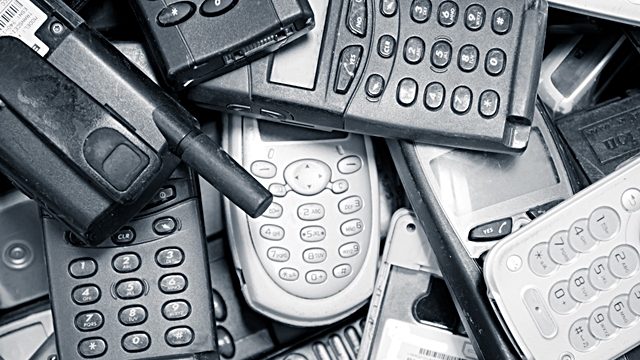FCC commissioner wants to end Obamaphone fraud

OBAMAPHONE: FCC Commissioner Ajit Pai wants to set limits on the agency’s Lifeline phone program for low-income individuals to rein in the rampant fraud and abuse of the program.
By Josh Peterson | Watchdog.org
WASHINGTON, D.C. — A top federal regulator wants the Federal Communications Commission to rein in the so-called “Obamaphone” program.
FCC Commissioner Ajit Pai told an audience of right-leaning tech policy advocates Monday morning during an event organized by the nonprofit organization Citizens Against Government Waste that he wanted to reform the Lifeline program. Lifeline was first created in the 1980s, but now is fraught with waste, fraud, abuse by telecom industry members and consumers alike.
The Lifeline program is part of the congressionally mandated Universal Service Fund, intended to help carriers subsidize phone service for low-income people. Wireless carriers participating in the program receive $9.95 per month for each qualifying subscriber, and $34.25 if the subscriber lives in tribal lands. According to the FCC’s rules, only one Lifeline phone is allowed per qualifying customer.
Pai, one of the two GOP members of the commission, told audience members that he believed the Commission should put the program on a budget, reduce “financial incentive for people to commit Lifeline fraud” by possibly getting the states to help police the program, fill in gaps that encourage fraudulent behavior and step up enforcement of its rules.
HANG IT UP: FCC Commissioner Ajit Pai wants the FCC Commission to vote on a proposal to reform the Obamaphone program. ‘As that wise sage Yoda put it in the Empire Strikes Back, ‘Try not. Do, or do not. There is no try.”
Lifeline’s lack of a budget and little accountability enabled several wireless companies to defraud taxpayers of millions of dollars over the years, as well as program recipients to cheat the system by obtaining more than one phone.
Lifeline first became an overnight media sensation during the 2012 presidential election cycle after a viral YouTube video of a woman excitedly declaring her intention to vote for President Obama’s re-election because she received a free cell phone, which she dubbed an “Obamaphone,” made the headline of the Drudge Report.
“Lifeline wasn’t designed to give people free phone service,” Pai said.
“It was intended to provide low income consumers a discount on phone service, and the recent shift to free wireless service plans has dramatically increased the incentive for individuals to break the FCC’s rules by signing up for the program more than once,” he said.
Pai said the Lifeline program grew by nearly 102 percent since January 2009, compared to the program’s 3 percent growth during former President George W. Bush’s administration.
“From the end of 2008 to 2012, the size of the Lifeline program exploded from $819 million to $2.19 billion,” said Pai, “with annual increases of over 27 percent each and every year.”
According to a June 12 announcement by the FBI, for example, Oklahoma telecommunications company, Icon Telecom, and its sole owner, Wes Eui Chew, pleaded guilty to laundering more than $20 million, which he made by taking money from the Lifeline program.
Icon Telecom was involved in the program from July 2011 until September 2013. In September 2011, the company reported fewer than 2,200 qualifying customers. Fourtenn months later, Icon reported more than 130,000 qualifying customers.
“He admitted that when he made that transfer,” the FBI said, speaking about Chew wiring $20,455,829.10 to a personal account, “he knew that Icon had tens of thousands fewer customers than it had reported to the FCC for the first three months of 2013.”
The commissioner said that the explosion in fraud could be attributed to a change in the FCC’s rules to allow wireless re-sellers, wireless companies without their own network, attracted “many new carriers into the program whose sole model was to make money off of the Lifeline Program.”
Carriers began giving phones and minutes away for free, creating the incentive for customers to apply for as many new Lifeline phones as possible.
A 2013 investigation by Jillian Kay Melchior, a Thomas L. Rhodes Fellow for the Franklin Center for Government and Public Integrity, the parent organization of Watchdog.org, even revealed how easy it is for a person who does not qualify for the program to receive a Lifeline phone.
In 2012, the FCC created a database as part of a set of reforms to keep participants accountable . Members of Congress also examined the Lifeline Program in April 2013 during a House Energy and Commerce subcommittee hearing on Capitol Hill.
But the program still needs more reform, and Pai said he wants the Commission to hold a vote on his proposals.
“As that wise sage Yoda put it in the Empire Strikes Back,” he said, eliciting a laugh from the room, “‘Try not. Do, or do not. There is no try.’”
Contact Josh Peterson at jpeterson@watchdog.org. Follow Josh on Twitter at @jdpeterson







